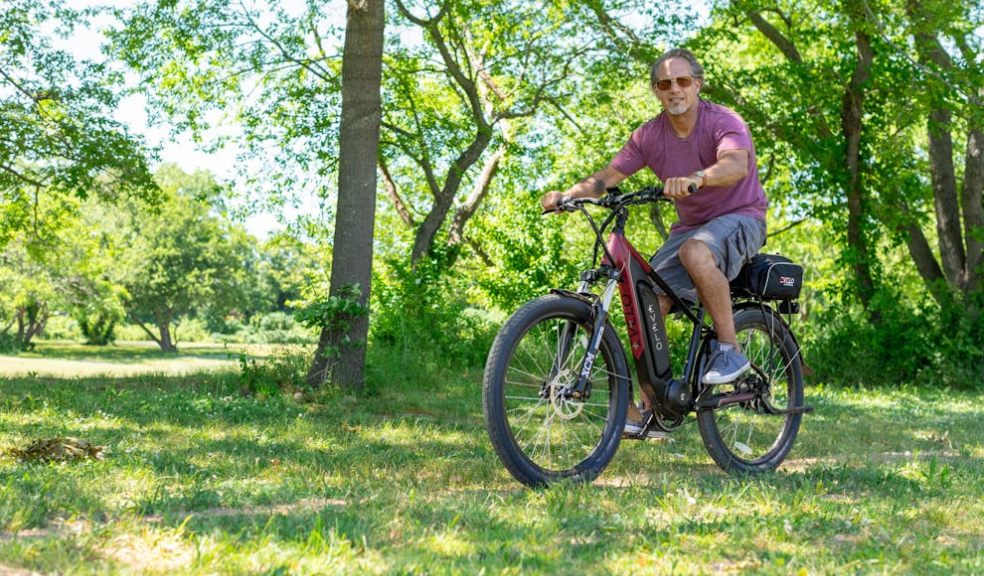
Electric Mountain Bikes: Weighing the Pros and Cons for Your Ride
Electric mountain bikes (eMTBs) are becoming increasingly popular among outdoor enthusiasts and urban commuters alike. These bikes combine the thrill of mountain biking with the convenience of electric assistance, making them a versatile choice for many. This article outlines the key pros and cons of eMTBs to help you make an informed decision.
Pros of Electric Mountain Bikes
1. Enhanced Riding Experience
eMTBs significantly improve the overall riding experience, making cycling more accessible and enjoyable.
Key Points
- Motor Assistance: eMTBs reduce physical effort, particularly during uphill climbs and long-distance rides. The electric motor provides a boost, making challenging terrains more manageable.
- Extended Range: With the help of electric assistance, riders can cover greater distances without feeling exhausted, enabling longer adventures.
- Adjustable Assistance: Most eMTBs offer multiple levels of motor assistance, allowing riders to customize their support based on terrain and fitness levels.
2. Versatility
eMTBs are designed to handle a variety of environments, from urban streets to rugged trails.
Key Points
- Commuting and Recreation: eMTBs are suitable for both daily commuting and recreational off-road adventures, offering a dual-purpose solution.
- All-Terrain Capability: These bikes are built to handle diverse terrains, including city streets, dirt paths, and mountain trails.
3. Health and Fitness
Using an eMTB promotes physical activity while reducing the strain associated with traditional biking.
Key Points
- Promotes Physical Activity: eMTBs encourage regular exercise, helping to improve cardiovascular health and overall fitness.
- Accessible for All Fitness Levels: The electric assistance makes mountain biking accessible to people of various ages and fitness levels, broadening the appeal of cycling.
- Customizable Workouts: Riders can adjust the level of assistance to balance effort and workout intensity.
4. Environmental Impact
Electric Mountain Bikes offer significant environmental benefits compared to conventional motor vehicles.
Key Points
- Reduced Carbon Footprint: eMTBs produce zero emissions during use, contributing to lower carbon emissions compared to cars.
- Sustainable Transportation: They promote green commuting by reducing reliance on fossil fuels and decreasing traffic congestion.
5. Technology and Innovation
eMTBs incorporate advanced technologies that enhance the riding experience.
Key Points
- Smart Features: Modern eMTBs come with integrated GPS, fitness tracking, and anti-theft systems, adding convenience and security.
- Improved Batteries: Advances in battery technology have resulted in longer battery life and faster charging times, making eMTBs more practical for daily use.
Cons of Electric Mountain Bikes
1. Cost
The financial aspect of owning an eMTB can be a significant consideration.
Key Points
- Higher Initial Investment: eMTBs are generally more expensive than traditional bikes due to their advanced components.
- Maintenance Costs: The complex components of electric mountain bikes can lead to higher maintenance and repair costs.
2. Weight
The added weight of eMTBs can pose challenges in certain situations.
Key Points
- Heavier than Traditional Bikes: The motor and battery add significant weight, making eMTBs heavier than regular bikes.
- Handling and Transport: The increased weight can make eMTBs more challenging to handle and transport, especially if lifting is required.
3. Limited Battery Life
Battery life is a crucial factor to consider when using electric mountain bikes.
Key Points
- Range Anxiety: Concerns about running out of battery power during long rides can be a drawback.
- Charging Time: eMTBs require regular charging, and charging times can be longer compared to the convenience of refueling a car.
4. Regulations and Restrictions
Legal and practical restrictions can limit the use of eMTBs in certain areas.
Key Points
- Legal Restrictions: Laws regarding where eMTBs can be ridden vary, with some areas having specific regulations.
- Trail Access: Access to certain trails and parks may be restricted for eMTBs, limiting off-road riding opportunities.
5. Maintenance and Repairs
Maintaining an eMTB can be more challenging compared to traditional bikes.
Key Points
- Complex Components: The advanced and specialized parts of eMTBs require professional maintenance, which can be more costly and time-consuming.
- Availability of Services: Finding skilled technicians and replacement parts for electric mountain bikes can sometimes be difficult, depending on your location.
Final Thoughts
Electric mountain bikes offer numerous advantages, including an enhanced riding experience, versatility, health benefits, and environmental sustainability. However, potential drawbacks such as higher costs, increased weight, limited battery life, and regulatory restrictions must also be considered.
By weighing these pros and cons based on your personal needs and preferences, you can make an informed decision about whether an eMTB is the right choice for you. Ready to explore the world of eMTBs? Test ride different models at E-Bikes Direct and experience the benefits firsthand before making your purchase.













